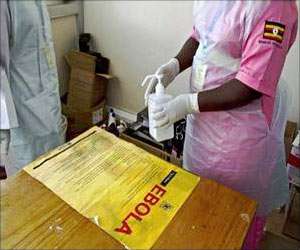Christian students initiated a 3-day workshop where around 70 medical student leaders along with doctors came together to train people on Ebola prevention.

Youngsters have initiated a movement called “Sierra Leone Fellowship of Evangelical Students” (SLEFES). Dr. John Stott, one of evangelical Church’s global leaders, was the one who helped kickstart the movement about 50 years back. The Christian graduates invited students into their homes for Bible study initially. Later several groups were formed to make students get involved in relief and development work.
In May 2014, the student ministry took to another level when the deadly Ebola crisis erupted in Sierra Leone. Some of the students in the ministry were affected by the Ebola disease that made the SLEFES staff and students to find a way to help people against its spread.
So the SLEFES team, which included medical doctors and students, organized a three-day workshop on Ebola awareness. The students ran seminars and training workshop in the slum areas on the outskirts of Freetown. Around 70 student leaders came together and mapped out 12 vulnerable communities that needed Ebola prevention training.
Though Sierra Leone is an Islamic Majority Country, the Christian students happily offered help irrespective of religious background. Many residents participated in the workshop which made them aware of the preventive measures and also the importance of hygiene in their society.
They also launched a radio program called "Hope Alive" project that helped people to use the radio station to send messages to patients. It gained popularity where even the medical staffs started to use it. The Ministry of Health commended the project and has offered financial help to replicate its work in two other centers.
Advertisement
Source-Medindia










